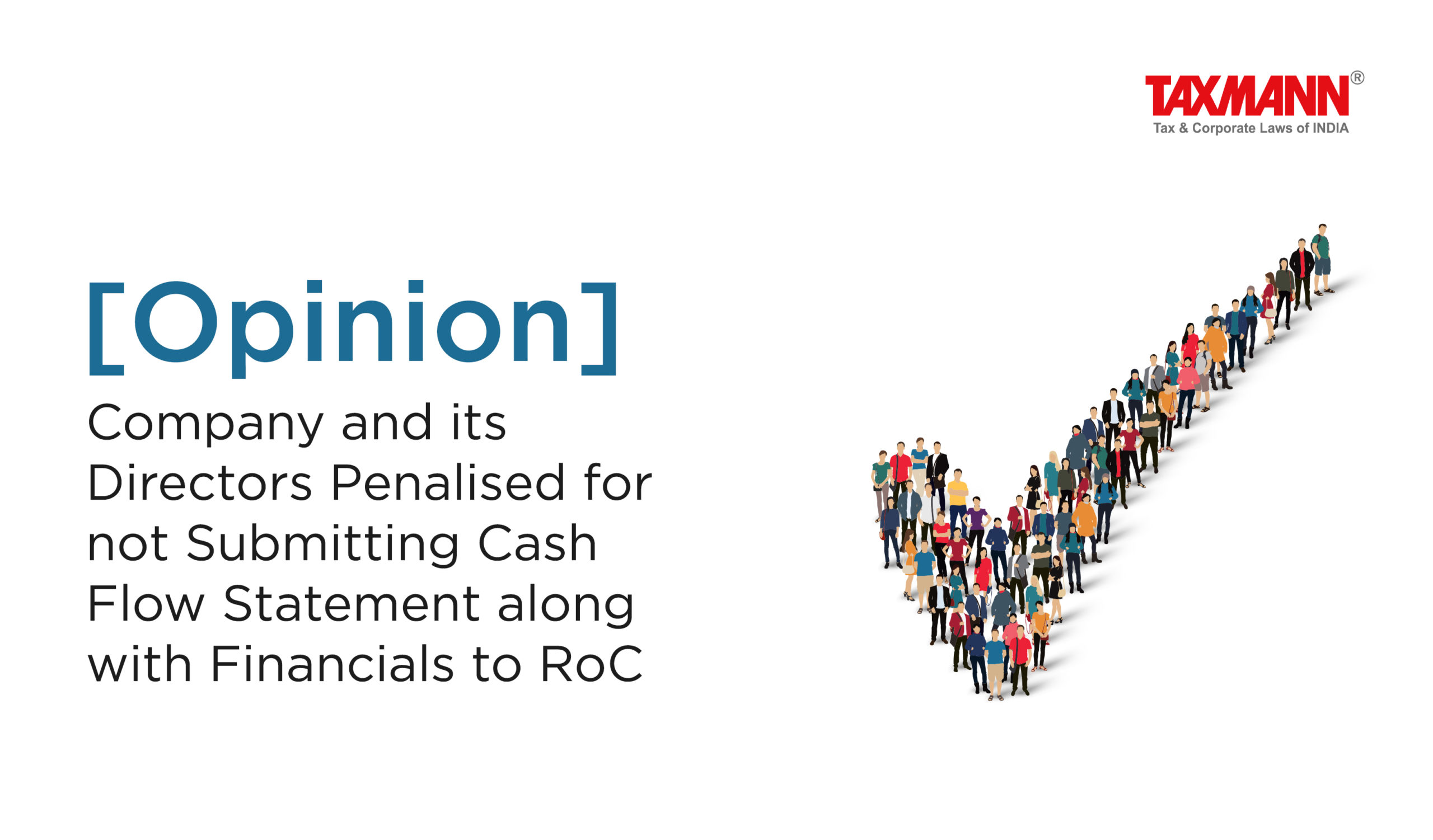[Opinion] Company and its Directors Penalised for not Submitting Cash Flow Statement along with Financials to RoC
- Blog|News|Company Law|
- 2 Min Read
- By Taxmann
- |
- Last Updated on 28 August, 2023

Prof R Balakrishnan – [2023] 153 taxmann.com 619 (Article)
1. Financial statements and their filing with the Registrar of Companies
Every company incorporated under the Companies Act is required to prepare its financial statements, get the same audited and thereafter along with the board report containing the particulars, are required to get it approved by the shareholders of the company. Thereafter, the company is required to submit the same to the Registrar of Companies in the specified format in the stipulated period of time. In case, financial statements are not adopted for some reason, the Companies Act 2013, also spelled out the procedure for filing unadopted financial statements as well.
Financial statements basically consist of the balance sheet at the end of the financial year, a profit and loss account or in the case of a company carrying on any activity, not for profit, an income and expenditure account for the financial year along with auditors’ report and cash flow statement for the financial year amongst few other things. As per Section 137 of the Companies Act 2013, read with Rule 12 of Companies (Accounts) Rules 2014, the financial statements are required to be filed in the prescribed form AOC-4 XBRL by every company annually within the prescribed time limit along with all the mandatory attachments.
2. Relevant provisions of the Companies Act 2013
The relevant provisions under the Companies Act 2013 is section 137 (1) and as per this section – A copy of the financial statements, including consolidated financial statement, if any, along with all the documents that are required to be or attached to such financial statements under this Act, duly adopted at the annual general meeting of the company, should be filed with the Registrar of Companies within thirty days of the date of the annual general meeting in such manner, with such fees or additional fees as may be prescribed.
3. Sub-section 40 of section 2 of the Companies Act 2013
Financial statement in relation to a company, includes
(i) a balance sheet as at the end of the financial year;
(ii) a profit and loss account, or in the case of a company carrying on any activity not for profit, an income and expenditure account for the financial year;
(iii) cash flow statement for the financial year;
(iv) a statement of changes in equity, if applicable; and
(v) any explanatory note annexed to, or forming part of, any document referred to in sub-clause (i) to sub-clause and Provided that the financial statement, with respect to One Person Company (OPC), small company and dormant company, may not include the cash flow statement.
Click Here To Read The Full Article
Disclaimer: The content/information published on the website is only for general information of the user and shall not be construed as legal advice. While the Taxmann has exercised reasonable efforts to ensure the veracity of information/content published, Taxmann shall be under no liability in any manner whatsoever for incorrect information, if any.

Taxmann Publications has a dedicated in-house Research & Editorial Team. This team consists of a team of Chartered Accountants, Company Secretaries, and Lawyers. This team works under the guidance and supervision of editor-in-chief Mr Rakesh Bhargava.
The Research and Editorial Team is responsible for developing reliable and accurate content for the readers. The team follows the six-sigma approach to achieve the benchmark of zero error in its publications and research platforms. The team ensures that the following publication guidelines are thoroughly followed while developing the content:
- The statutory material is obtained only from the authorized and reliable sources
- All the latest developments in the judicial and legislative fields are covered
- Prepare the analytical write-ups on current, controversial, and important issues to help the readers to understand the concept and its implications
- Every content published by Taxmann is complete, accurate and lucid
- All evidence-based statements are supported with proper reference to Section, Circular No., Notification No. or citations
- The golden rules of grammar, style and consistency are thoroughly followed
- Font and size that’s easy to read and remain consistent across all imprint and digital publications are applied



 CA | CS | CMA
CA | CS | CMA
